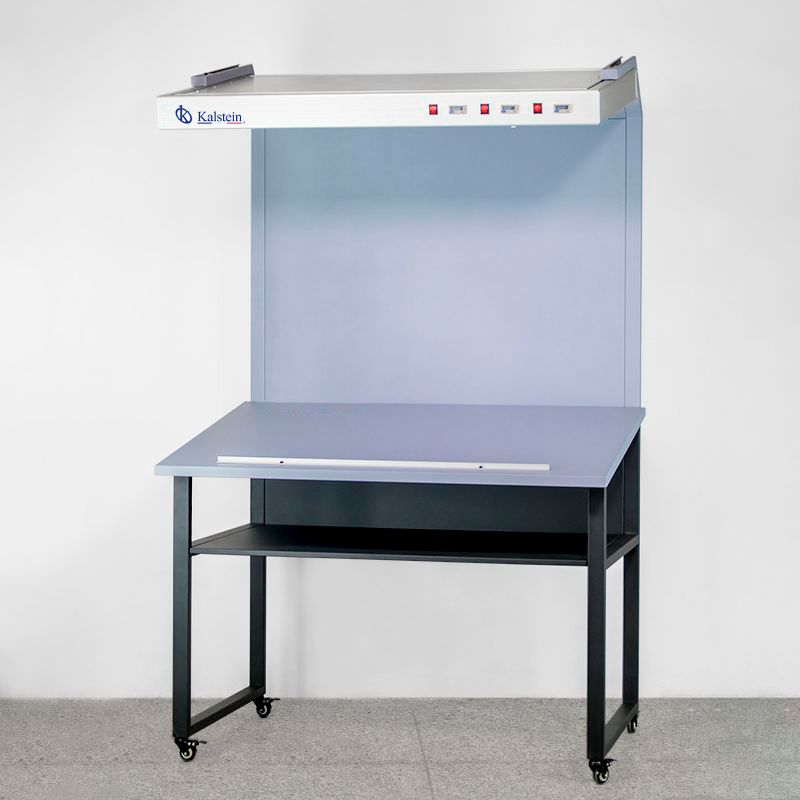The color assessment box allows an approximately objective and consistent assessment of the coloration of body tissues, making it ideal for the evaluation, detection and classification of skin diseases and lesions. Medical laboratories can use these devices to give an accurate and unbiased assessment to uncover body tissue pathologies.
The color evaluation box has been used for almost a century with one main objective: to characterize the color of body tissues. This box is designed to be used with a magnifying glass or microscope to allow accurate and consistent color assessment of tissues. Magnifying glass or microscope allows clear visualization of the lesion and damaged tissue.
How is the color measurement done with the evaluation box?
The color evaluation box contains a collection of color cards covering a range of bases, reflections and saturations. In general, cards are sorted from the lightest color card to the darkest color card, allowing a simple and direct comparison between body tissue and reference color. These color cards display a full range of colors from white to black, with shades of blue, green, yellow, orange, and red.
In this regard, it is possible to measure the color of body tissues with a specially designed colored pencil called Spectrochrome Pencil. These pencils are small and have connectors like a micrometer for ease of use. The Spectrochrome pen measures luminosity, saturation and color accurately and accurately. The use of these instruments helps to make objective and reproducible color measurements.
Following the above idea, the measurement process consists of three steps: marking the surface of the lesion with a light rub of the pencil in a specific area; aligning the pencil with the color card; and measuring the color with a visual assessment. The end result is a description of the exact color, base, reflection and saturation that can be easily compared to the reference card for accurate data.
How does color measurement help doctors?
Once the color evaluation has been performed, the result can be saved to refer to other color panels and perform an accurate and detailed comparison. This helps the health care practitioner determine whether the injured area is developing or worsening. This also helps practitioners see if there is any foreign pigment or if there is any skin disease or injury that needs to be treated or gone.
For medical laboratories, the color evaluation box can provide valuable data on the health of various parts of the body. This device is also used to discover contagious diseases and chronic diseases, since color changes of the skin surface are the first signs of diseases such as eczema, psoriasis and dermatitis. It also provides information useful for evaluating other lifestyle habits, such as excess sun or taking drugs that can affect skin pigment.
Why is the color box a useful tool in medicine?
Another great use of the color assessment box is to measure the loss of pigment in the hair. Many people suffer from discoloration, so the information obtained can help medical professionals determine the best treatment for the patient. In short, the Color Evaluation Box is a useful tool for assessing the color of body tissues. This box is especially useful for medical laboratories examining tissues for skin disease or skin lesions.
This tool can also help medical professionals determine the best cure for contagious diseases, chronic diseases and sun damage. By measuring color tones of skin surfaces, hair, and lesions, medical laboratories can obtain useful information to determine the best course of treatment for the patient.
Color study of fabrics with the Kalstein Color Box
Kalstein took this procedure to a whole new level. In some models there are several light sources to simulate various lighting conditions and with automatic recording of the time of use; they are also energy-efficient and made in durable materials. By visiting our pages we can advise you on the purchase of these devices at very convenient prices. Web addresses are HERE and HERE .

